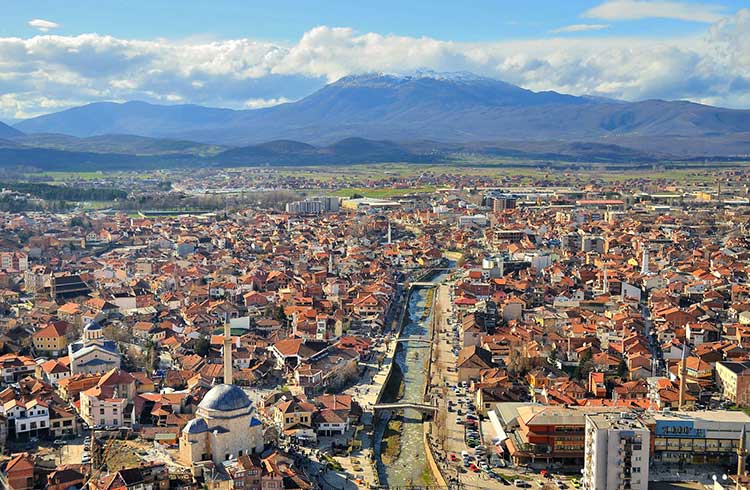Is Kosovo Safe? Top 5 Essential Travel Safety Tips
Organized crime, pedestrian safety, fraud and unattended mines. What you need to know to stay safe and enjoy your trip to Kosovo.
 Photo © Getty Images/Photograph by Ivan S. Abrams
Photo © Getty Images/Photograph by Ivan S. Abrams
1. Crime in Kosovo
Violent crime exists in Kosovo, but it's usually confined to members of organised crime. Most of the dangers are of the petty kind found in most places: pickpocketing and purse-snatching. Take the usual precautions: keep your wallet safe and hold your bag in front of you when in crowded areas or in public transportation.
2. Watch out for mines and stray bullets in Kosovo
As a place that saw plenty of armed conflict, Kosovo was once littered with landmines and unexploded bombs. Most of them were cleared, especially along major routes and population centres, thanks to one of the largest de-mining projects ever undertaken. Areas that haven't been cleaned are at least marked as so. But it doesn't mean they're all gone.
Armed mines could still be buried along the Kosovo-Albania border, so any off-road travel and hiking in wooded areas carry a risk. Have a really long chat with local authorities before getting off the path.
Likewise, unexploded cluster bombs are still a problem in rural areas, although less than in past years. Again, exercise caution and if you come across remnants of bombs, get away and alert authorities.
In Kosovo, happy times are observed by firing assault rifles into the air. It's all fun and games until the law of gravity rains stray bullets onto innocent bystanders.
Celebratory gunfire is common in major public holidays, especially New Year's and Kosovo Independence Day, which falls on February 17. Also, major elections, soccer games and weddings can get celebrants trigger-happy. If you happen to be around on of those, take shelter.
Likewise, avoid being close to fireworks. Injuries happen every year when fireworks are used irresponsibly.
3. Health concerns
It's not a good idea to get sick in Kosovo. Hospitals are chronically under-funded and under-equipped, while doctors lag modern know-how by many years.
You'll be asked for a small payment for medical service, usually around 4 euros. You are strongly advised to take out travel insurance in case you need to be flown out.
Kosovo suffers from sporadic outbreaks of Crimean-Congo Haemorrhagic Fever (CCHF), which is transmitted by ticks during the summer months. It's as nasty as it sounds. Although, at the time this was written, only 18 people have has confirmed cases since April 2010, five have died.
Most of them occur around the central Kosovar region of Malishev, but other rural regions have been affected. If you feel a sudden fever, aching muscles, dizziness, sore eyes, abdominal pain, mood swings and rashes, seek immediate help. Death usually occurs in the second week is untreated.
Other symptoms may include nausea, diarrhoea, bleeding gums, nosebleeds, and blood in urine and stools.
4. Cash or card in Kosovo?
The economy is cash-based and the Euro is the currency in use.
While credit cards are accepted widely, limit their use to trusted businesses like hotels. Credit card fraud is growing, and the more you use it, the more you put yourself at risk.
5. Pedestrian safety
Also, look down when you walk, especially in Pristina. Desperate people have been known to steal manhole covers for scrap metal. This isn't an issue in busy areas, but even a few kilometres outside downtown could be dangerous. Be especially careful when walking in tall grass beside roads or sidewalks.
And if you see a small pile of sticks and stones, walk around it. These could be the local residents' interim solution to a open sewer hole.
Simple and flexible travel insurance
You can buy at home or while traveling, and claim online from anywhere in the world. With 150+ adventure activities covered and 24/7 emergency assistance.
Get a quote
No Comments